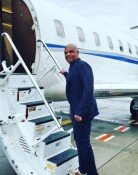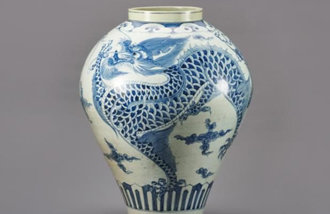Parties Mull Political Restructuring
As the prospect of the upcoming May 31 local elections becomes obvious, political circles are already beginning to discuss what to do after the elections. Chairman Chung Dong-young of the ruling Uri Party initiated the discussion by pronouncing his willingness to pursue a post-election political restructuring on the assumption that his party loses miserably in the local elections. It is also likely that after the elections, discussions on such issues as constitutional amendment and an inter-Korean summit meeting might be accelerated.
Political Restructuring: Can an Agreement Be Reached?-
The most easily-expected version of political restructuring after the local elections is a tripartite partnership among the Uri Party, the Democratic Party and former prime minister Goh Kun.
At a time when it is unclear whether we will win in the next presidential election, a partnership with the Democratic Party or Goh is not a matter of choice but of survival, said a second-term lawmaker at the Uri Party. In the face of mutual destruction, neither Chairman Chung nor Supreme Councilor Kim Geun-tae would be able to avoid it.
The Democratic Partya small opposition partyand former prime minister Goh, who lacks an independent political force, both believe a political restructuring is inevitable to expand their political influence. It might be fair to say that a consensus has been reached among the three parties.
The Democratic Party, however, puts more weight on disbandment of the Uri Party and the creation of a new party, which means the precondition of the Uri Partys completely abandoning its vested interests should be met. Goh has yet to present specific plans, but he would not easily hold out his hand without his becoming a presidential candidate.
As to how a political restructuring should be done, the interests of the three parties vary. This is why numerous conflicts and twists and turns are unavoidable in the process of discussing political restructuring.
Confronting Ideas Even within the Ruling Party-
Pursuing political restructuring is highly likely to spark conflict from within the ruling party. In the Uri Party, most lawmakers representing Jeolla Province are enthusiastic about the ideas of uniting as one centering on former prime minister Goh, or consolidating the party with the Democratic Party. Young lawmakers, mainly consisting of former student activists of the 1980s, define such ideas as a retreat in reform. Some of them privately say, Those who are claiming so should choose to leave the party.
GNP Seeks to Avoid Political Restructuring in the First Place-
With regard to the discussions on political restructuring initiated by members of the ruling party, the Grand National Party (GNP) dismissed it as rhetoric for election, but has still kept an eye on the movement.
Vice spokesperson Lee Jung-hyun of the GNP strongly criticized the ruling party on May 25, saying, [The ruling party] is suggesting a political restructuring right before the elections in an effort to avoid the responsibility of the defeat after the elections. This is very irresponsible, and is against political morals.
The GNP blocked any discussions of a constitutional amendment which might set off political restructuring. In a forum held by the Kwan Hun Club on May 9, GNP Chairwoman Park Geun-hye stressed, A constitutional amendment during the term of the current administration should never happen. This was also a preemptive measure to rule out the possibility of political restructuring through discussions on constitutional amendments.
Seoul mayor Lee Myung-bak and Gyeonggi governor Sohn Hak-kyu also suggested a constitutional amendment as their pledge for the next presidential election; they claimed with one voice that a constitutional amendment should be pursued by the next administration.
Jung-Hun Kim Yeon-Wook Jung jnghn@donga.com jyw11@donga.com







